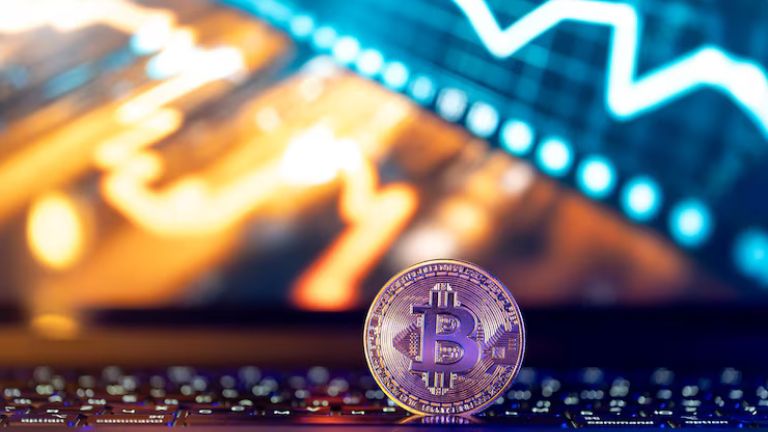
The Hidden Dangers of Peer-to-Peer Bitcoin Sales in Nigeria and How to Avoid Them
Have you ever tried to sell Bitcoin directly to someone in Nigeria and thought, “This is easy money”? Well, you’re not alone. But here’s the kicker: Over 30% of Nigerians who use peer-to-peer (P2P) platforms for crypto trades have experienced fraud or scam attempts.
That’s nearly 1 in 3 people! Sounds scary? It should.
Bitcoin sales in Nigeria have grown rapidly, especially with the rise of decentralized finance and crypto awareness. But with this growth comes a dark side, such as scammers, identity theft, fake alerts, and so much more. If you’re thinking of getting involved in P2P Bitcoin sales, or you already are, this blog is your guide to what could go wrong and how to stay safe.
What is Peer-to-Peer (P2P) Bitcoin Selling?
Let’s start with the basics. P2P Bitcoin selling is when you sell your Bitcoin directly to another person without using a centralized exchange. Most people do this through P2P platforms like WhatsApp groups, Telegram channels, or third-party crypto platforms.
It sounds like a good idea, right? No middlemen, possibly better rates, and fast transactions. But that’s just the shiny part. The real issues often go unnoticed until it’s too late.
Hidden Danger 1 - Fake Payment Alerts
This is the most common scam in P2P transactions. You agree on a price. The buyer sends a "payment alert." It looks real. But when you check your bank account, nothing’s there. These fraudsters use fake SMS or email alerts to trick you into releasing your Bitcoin. And once you do, they vanish. Your coins? Gone forever.
Tip to Avoid: Always confirm payments inside your bank app or through internet banking, not just SMS or email alerts.
Hidden Danger 2 - Identity Theft and Impersonation
Here’s how this plays out: someone contacts you, saying they want to buy Bitcoin. You send them your account info, wallet address, or even ID for “verification.” Days later, you find out your details were used to open fake accounts or commit fraud. Criminals love collecting people’s personal data during crypto deals, especially in loosely moderated P2P groups.
Tip to Avoid: Never share sensitive documents or personal info in unverified chat groups. Keep it minimal and always verify the buyer.
Hidden Danger 3 - Law Enforcement Trouble
Imagine this: You sell Bitcoin to someone who paid you with money linked to fraud. The next thing you know, your bank account is frozen, and you're under investigation.
Scary, right? This happens more than people realize.
Banks in Nigeria monitor suspicious crypto-related transactions. If a fraudulent transaction is linked to you, even unknowingly, you could face serious legal trouble.
Tip to Avoid: Only transact with verified buyers. Keep proper records (screenshots, chat logs, account numbers) of every transaction.
Hidden Danger 4 - Price Manipulation and Greedy Deals
In P2P trades, prices are not always fair. Some buyers take advantage of newbies by offering way below market rates or changing the agreed rate at the last second. They’ll say things like: “I’ll pay N10 million instead of N10.3 million. If you don’t want it, I’ll go to someone else.” In the heat of the moment, you agree and lose money.
Tip to Avoid:Tip to Avoid: Before selling, always check the current BTC-to-Naira rate from trusted sources. Stand your ground and don’t fall for pressure tactics.
Hidden Danger 5 - No Protection or Support
In traditional exchanges, if something goes wrong, you can raise a dispute or get support. But in many P2P setups, it’s just you and the buyer. No help. No protection. No refund. If the person disappears or blocks you, there’s no one to turn to.
Tip to Avoid: Use platforms that offer buyer/seller verification, transaction escrow, and customer support. These features add a strong layer of security.
But Why Do People Still Use P2P for Bitcoin Sales in Nigeria?
Let’s be honest, it’s mostly because of accessibility. Some people think they get better rates or faster service through P2P. Others just don’t know safer options exist.
But saving a few naira is not worth risking your entire BTC wallet or your personal safety.
So, How to Sell Bitcoin in Nigeria Safely?
Glad you asked. ,Selling Bitcoin safely in Nigeria means:
- Using a trusted platform with real-time exchange rates
- Avoiding direct chats with unknown buyers
- Confirming payments thoroughly before releasing your coins
- Avoiding platforms with no security checks or reviews
- Documenting all conversations and transactions
What Should You Look For in a Platform?
Here’s a simple checklist for choosing the best site to sell Bitcoin in Nigeria:
- Transparent Rates: No shady price tricks or hidden charges.
- Instant Payouts: You get your money fast, straight to your bank.
- Secure Escrow System: Bitcoin is held safely until payment is confirmed.
- Verified Buyers and Sellers: To avoid fraud and fake identities.
- User-Friendly Interface: So you don’t feel lost every time you log in.
- 24/7 Customer Support: Real people ready to help if something goes wrong.
Wrapping Up: Don’t Let a Scam Be Your Teacher
The truth is, Bitcoin sales in Nigeria are not going anywhere. In fact, they’re rising fast as more people jump into the crypto space. But so are scams, fraudsters, and avoidable mistakes.
If you’re looking for a secure, easy-to-use, and verified platform for Bitcoin transactions, one that protects you and your funds while offering great rates, then you should explore QXChange. It ticks all the safety boxes and helps you avoid all the risks we talked about above, so you can sell your Bitcoin with peace of mind.
Stay smart. Stay safe. And never trade your trust for a too-good-to-be-true deal.
